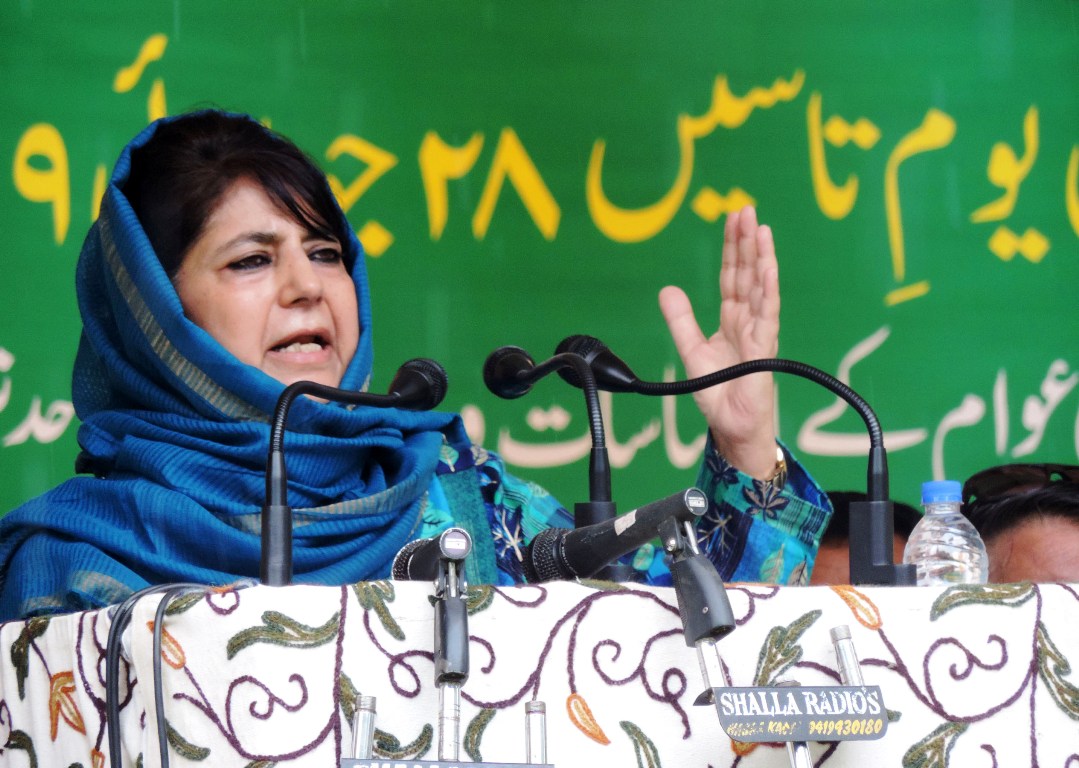KL Report
SRINAGAR
The release of Masarat Alam Bhat, the Chairman of the Jammu and Kashmir Muslim League, who has been detained multiple times under the Jammu and Kashmir Public Safety Act has once again drawn attention to the abuses enabled by this oppressive law, a statement issued by the Amnesty International India said.
 Estimates of the number detained under the PSA since 1991 range from 8,000-20,000. In August 2014, the Jammu and Kashmir Chief Minister said in the state legislative assembly that 76 people were being detained under the PSA as of July 2014.
Estimates of the number detained under the PSA since 1991 range from 8,000-20,000. In August 2014, the Jammu and Kashmir Chief Minister said in the state legislative assembly that 76 people were being detained under the PSA as of July 2014.
Amnesty International stated it has extensively documented the widespread use of the Public Safety Act to detain several people every year without charge or trial. In March 2011, Amnesty International published the report ‘A Lawless Law’ on administrative detentions under the PSA, documenting the various ways in which the use of the PSA violated international law. In July 2012, Amnesty International published another report ‘Still a ‘Lawless Law’‘ which outlined how, despite legal and policy developments, key human rights concerns with the PSA and its application remain unchanged.
Amnesty International research has showed that the implementation of the PSA is often arbitrary and abusive, with many of those being held having committed no recognisably criminal acts. The PSA’s vague and over-broad provisions facilitate a range of human rights violations in practice.
Those held under the PSA can face up to two years in detention. But the Jammu and Kashmir authorities consistently thwart court orders for the release of improperly detained individuals by issuing successive detention orders. Many detainees are thus trapped in a cycle of detention and remain, in the words of high-ranking officials, ‘out of circulation’.
The Supreme Court has described administrative detention, including the PSA, as ‘lawless law’.
The PSA has often been used as an ‘informal justice system’ to secure the long-term detention of individuals instead of charging and prosecuting them in a court of law. Administrative detention under the PSA circumvents the safeguards of a fair trial, and undermines the rule of law. The PSA aso provides immunity from prosecution for officials operating under it.
In November 2014, Vice-President Hamid Ansari said the use of laws like the PSA to commit human rights violations “reflects poorly on the State and its agents”. The UN Special Rapporteur on the situation of human rights defenders has stated that laws like the PSA allow the state to wrongfully target human rights defenders, and called for the repeal of the law.
Amnesty International India takes no position on the guilt or innocence of those detained under the PSA. Instead, it argues that all detained persons must be charged with recognised criminal offences and promptly tried by a court that meets international fair trial standards, or else be released. Not prosecuting persons suspected of committing offences also violates the rights of the victims of these offences.















